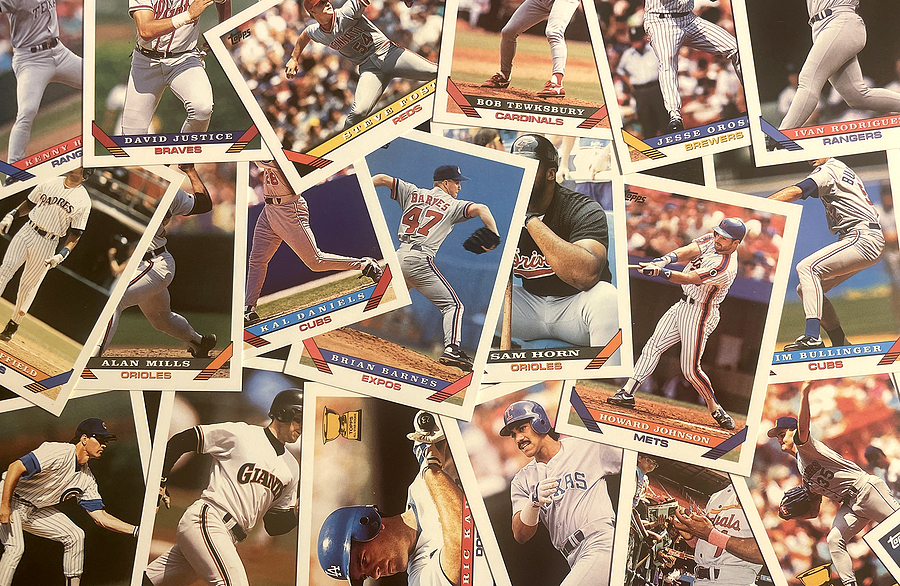Folks, our kids are in trouble! Trouble with a capital “T,” and that stands for … trading cards?
Every decade or so, America is swept by a moral panic over how our kids are having fun.
In the 1980s, Dungeons & Dragons had parents worrying their children were in league with the devil. A decade later, experts warned that video games like Mortal Kombat and Doom were converting our kids into killer cyborgs. And in the 2000s, Harry Potter brewed up a fear of witchcraft that hadn’t been seen in this country since the Salem witch trials.
Today, it’s trading cards.
Yes, those same packs you used to buy at the card shop or department store, toss aside the stale stick of flat bubble gum, and hope you’d picked up your favorite athlete — or the one member of the Yankees’ starting rotation you still didn’t have. So why are today’s moral crusaders taking aim at this decades-old hobby that many of them probably enjoyed when they were kids?
Two words: card breaks.
“Card breaking,” or “pack breaking,” is essentially an updated version of a kid slapping down 50 cents for a pack of baseball cards and hoping for a Hank Aaron. Just bigger and — horrors! — on the internet.
Card breaks are when collectors or streamers open sealed packs (or even entire cases) of trading cards — often live on video — to reveal what’s inside. Each pack is a “mystery box.” Sometimes kids play “Pick Your Team,” buying in on a specific franchise — the Dodgers, the Bears, etc. — and getting all the cards from that team when the pack is opened.
The excitement lies in the chance of getting a big haul or pulling a rare, valuable card.
But for the manufacturers of moral panic, “chance and excitement” sound a lot like “gambling and addiction.”
In the name of protecting children, there are calls to regulate this updated version of card trading — and in the process, we’re inching toward the kind of nanny-state oversight that mistakes excitement for exploitation.
Some platforms, including TikTok, have already banned or restricted card-breaking videos, worried that letting kids spend their money on pack-breaking parties is just one short step from kneeling in a dark alley over a pair of dice shouting, “Come on, seven! Daddy needs the Shohei Ohtani card!”
Birches Health, a gambling addiction treatment company, claims trading card games are potentially dangerous:
“Card ‘breaks’ can mimic gambling by combining random outcomes, financial risk, and emotional highs. Live-stream platforms … heighten addiction risk with fast-paced bidding, peer pressure, and social interaction.”
Nobody denies that gambling can become a problem for some people, and America’s current love affair with sports betting is a legitimate concern. But banning what are essentially trading-card reveal parties because you’re worried about DraftKings is like fighting alcoholism by banning root beer floats.
We’ve seen this too many times before. Sometimes it’s important to put down the moral microscope and just let kids be kids.
Kids like to play games. They like surprises. They like to take risks. It’s all play, yet at the same time it’s part of growing up.
And trading cards, in particular, give kids something they don’t get nearly enough of: time away from screens. Kids play trading cards with other kids. They swap, they switch — sometimes they even try to scam — but they’re doing it away from the phones and video screens that occupy an inordinate amount of their time these days.
Trading cards aren’t passkeys into the world of vice. They’re a game that provides early lessons in responsibility, self-control, and entrepreneurship — the very traits we should want to cultivate.
For a country that prides itself on free enterprise and individual responsibility, it’s worth asking why every new pastime is met with demands for new rules. Americans have always had a knack for moral panic — and an even greater knack for asking government to step in and fix it.
Card trading isn’t the problem. Our reflex to regulate everything is.

